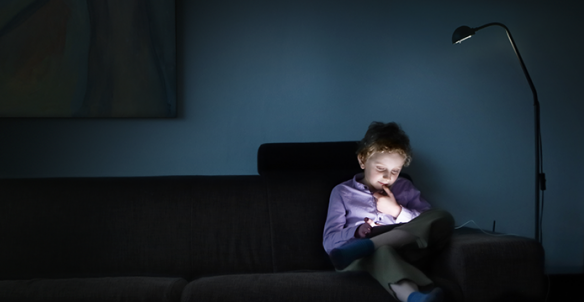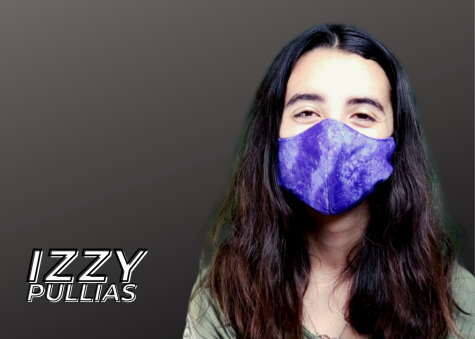Blue Light Exposure- Should You Be Worried?

Blue light exposure is most harmful at night through the use of screens that don’t properly filter it out.
Oct 14, 2020
The start of the school year has been a different experience for students and faculty, and many students have decided to take on virtual learning full-time. McIntosh has been on a hybrid schedule, leaving students on their laptops and technology more than even before, online for at least five days a week. The effects of prolonged time spent in front of any screen have been studied and identified as blue light which has proven to be damaging to long term vision.
Blue light is one of the shortest wavelengths on the visible light spectrum. Blue wavelengths are the most harmful in our visible light spectrum because they have the shortest wavelengths. However, even though they are the most harmful light on the visible spectrum, the visible spectrum is not harmful compared to much shorter wavelengths that are not on our visible spectrum like ultraviolet rays and gamma rays.
Blue light is a naturally occurring light, so it’s not just in our phones, computers, and TVs. It is all around us all the time. According to Harvard Health, “blue wavelengths—which are beneficial during daylight hours because they boost attention, reaction times, and mood—seem to be the most disruptive at night.”
The negative effects of blue light are very minimal during the day; most researchers have found that blue light is most harmful at night before we go to sleep. It can disturb our sleep cycle called our circadian rhythm, which is the ongoing cycle of us being awake and asleep. Too much disruption of this cycle can lead to a lot of health problems, but these are only apparent when there are extensive nights of no sleep involved. Harvard researcher Steven Lockley says “light at night is part of the reason so many people don’t get enough sleep.” Melatonin, the hormone that manages this circadian rhythm of our sleep, is often disturbed in the presence of blue light. Without enough melatonin, our sleep schedule becomes off, so this can lead to insomnia and other negative nighttime effects.
As high school students that are getting much more screen time than ever before this year, we have to take precautions to keep our sleep schedule on track, even if we have to stay up late writing a paper or submitting an assignment. Our chromebooks have a feature called nightlight, which is a filter that turns on to block blue light from our screens after a certain time. This nightlight is also available on most smartphones. Turning this on past a certain hour at night could help with students who struggle to fall asleep at night.
Many students also invest in blue light glasses, which are specifically designed to block out these harmful rays that are produced from computer screens.
“Lenses that filter out some blue light are available from eyecare and eyewear professionals as a way for parents to truly ensure they are safeguarding their children from digital eye strain and harmful blue light,” Cheryl G. Murphy, an eye care specialist said.






